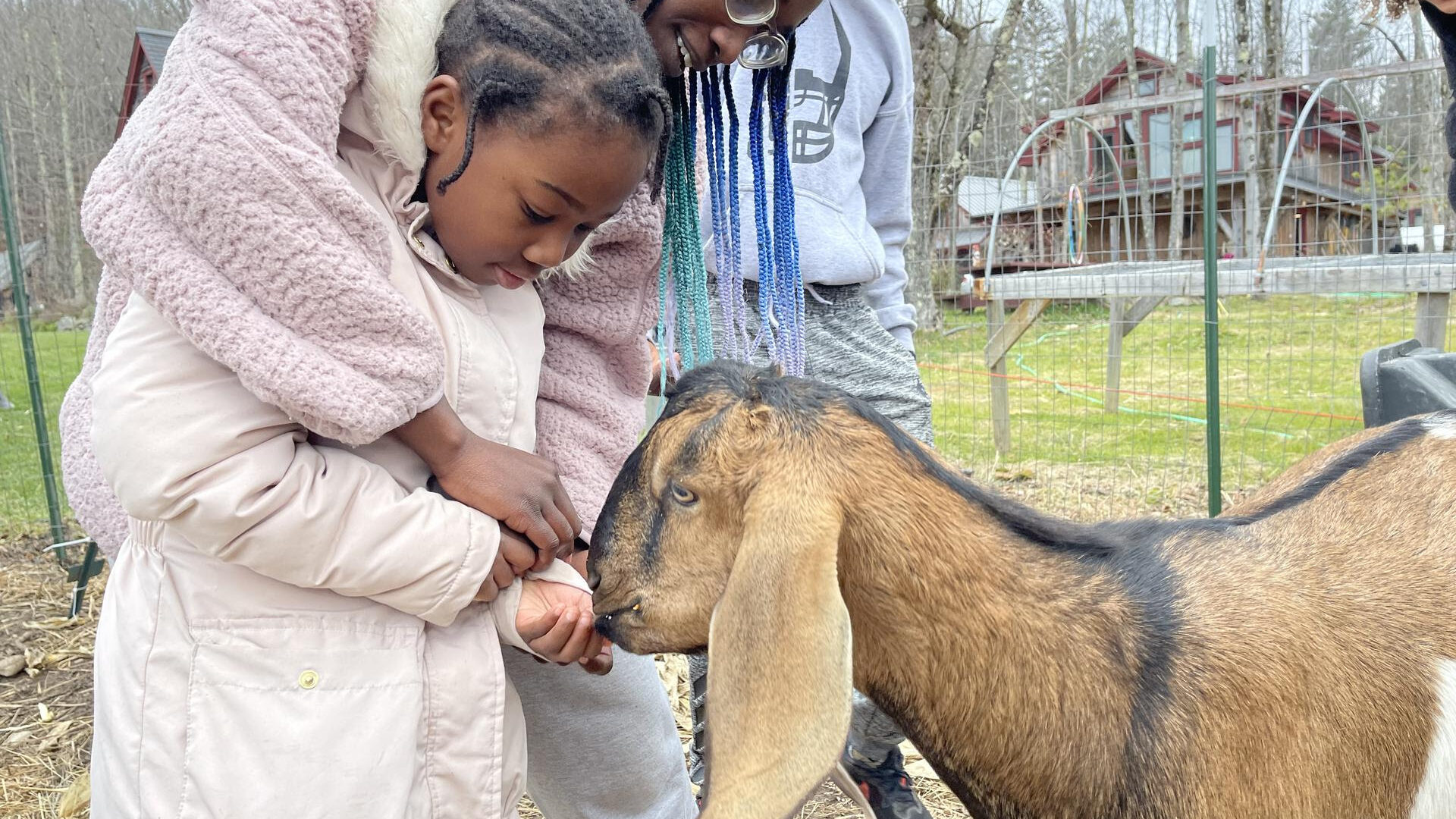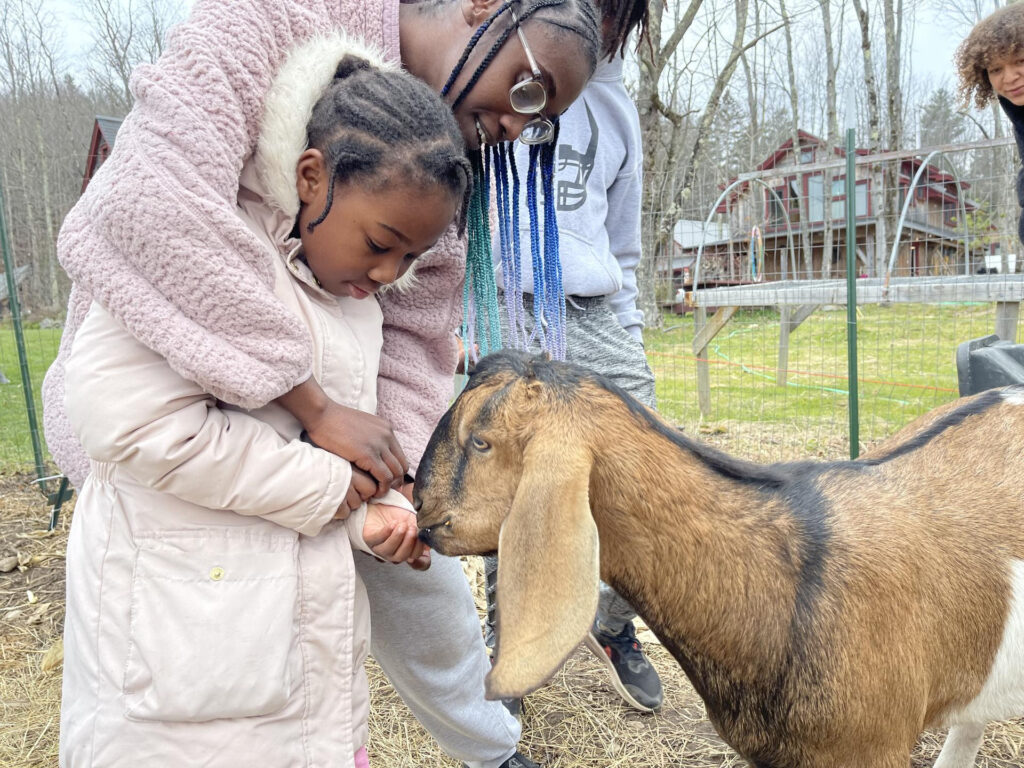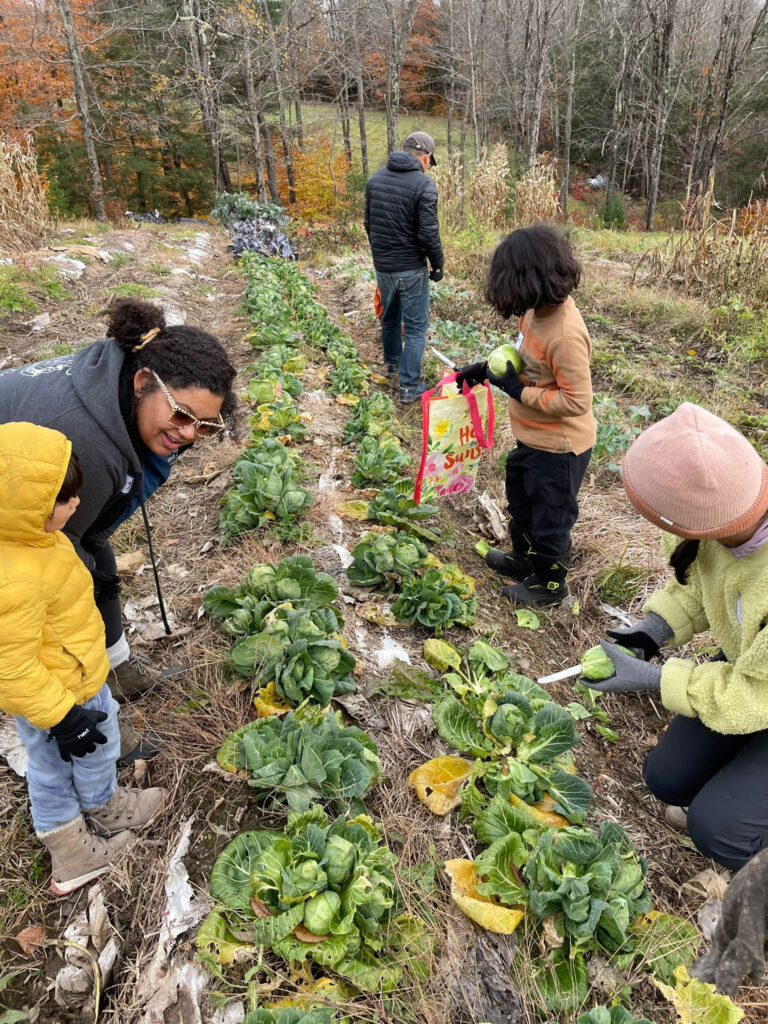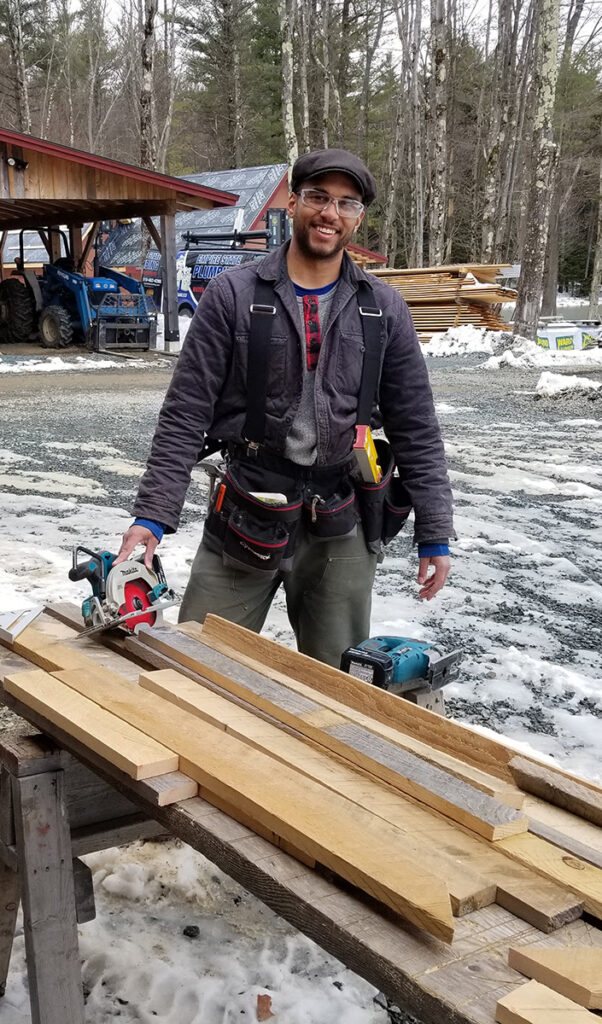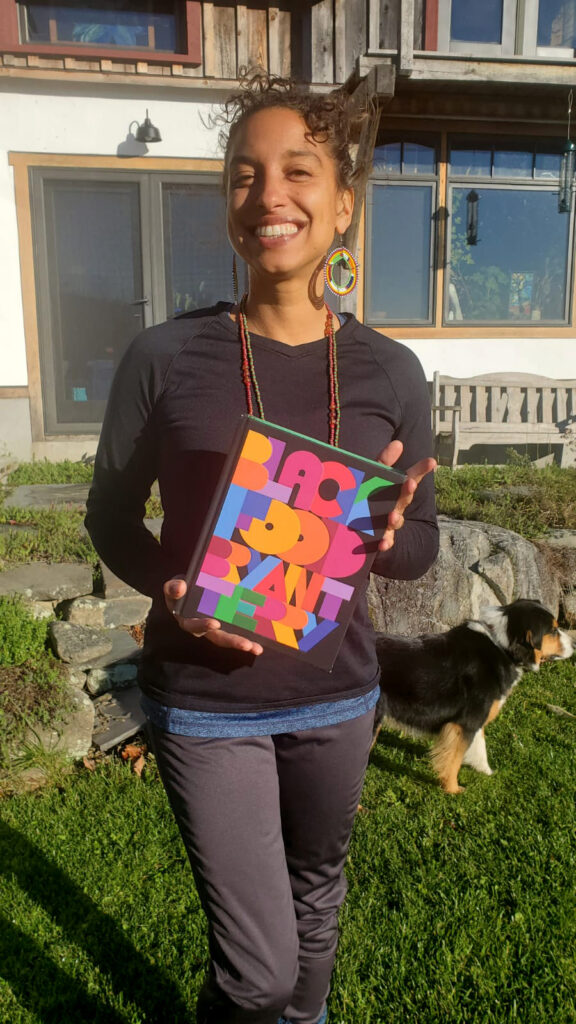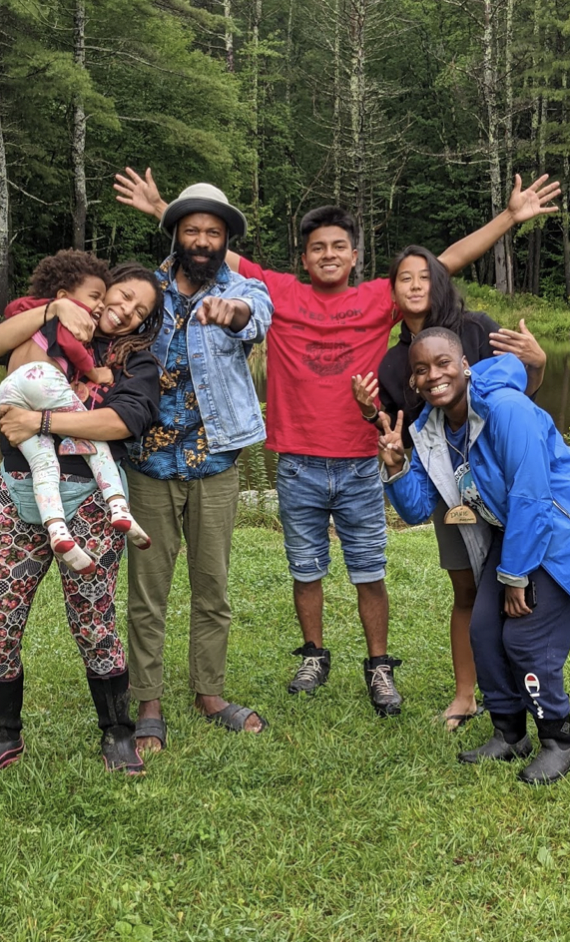“I think humans struggle with the meaning of knowledge, often believing themselves to be its sole owners. Might we connect to another way of knowing, in which understanding is derived from watching how life nurtures living?”
~ Tiokasin Ghosthorse
Strawberry jam, pumpkin bread, elderberry syrup, tea blends, herb salts, kimchi, hot sauce— this is the season of cherishing the harvest and transforming it into food and medicine in preparation for the long nights of winter. This month we wrapped up farm season by tucking the growing beds in with a thick blanket of straw for their slumber, and getting the goats, chickens and honey bees’ homes winterized for the cold season. We celebrated our final in-person community building days and the last Uprooting Racism training of the year.
We’ve been buzzing, taking stock of all that has transpired, and planning for the future we are devoted to building— from robust board and staff meetings to deep diving into the exciting process of growing our team.
Read on for November highlights and upcoming offerings.
Please note, Soul Fire Farm offices will be closed from December 17, 2021 through January 17, 2022. Emails sent to love@soulfirefarm.org between those dates will not be read nor responded to. Online store orders must be placed by December 19 for a final pack and send date of 12/20, or they will not be filled until late January.
Thank you for all the ways you have fed the flames of Soul Fire with your love and oxygen this year.
Wishing you softening, nourishment, connection and reflection that honors the warm glow of your heart.
May everyday be a practice of gratitude,
Azuré, Brooke, Cheryl, Dayo, Ife, Jonah, Kai, Leah, Naima and Ria
Thank you for this land, this healing, this healing, this healing land!
We gathered in a circle on a frosty November morning to pour water libations to the earth and sing this song of gratitude. Then, the children led the way into the fields for our gleaning day, where the last remnants of harvest were stuffed into baskets.
Together, we gathered onions, brussels sprouts, popcorn, cabbage, raspberries, and aromatic herbs that families would take home to their kitchens at no cost. Gleaning is an ancient practice of redistributive justice that acknowledges that the land’s harvest cannot be privately owned, and must be shared.
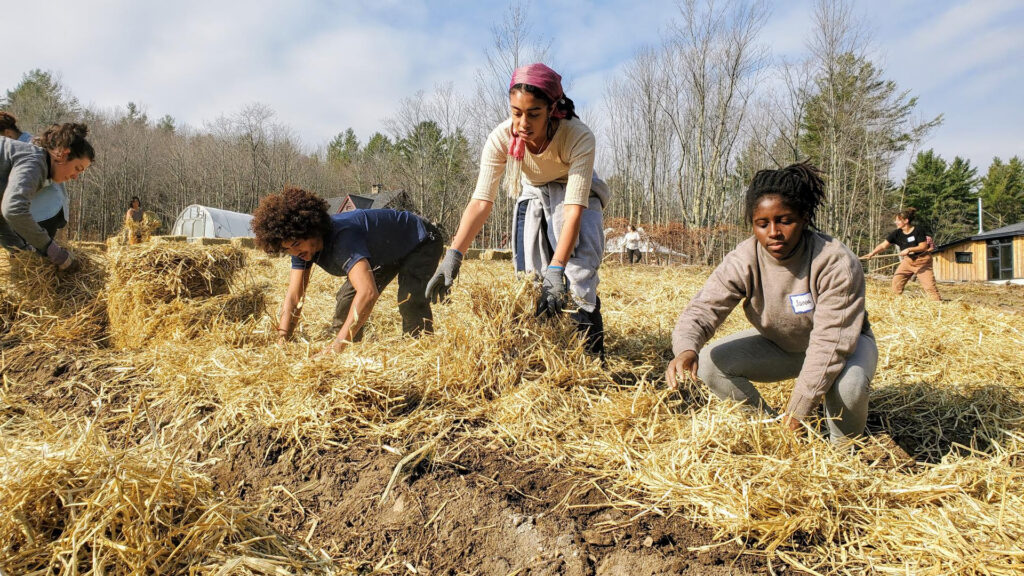
Gleaning complete, we moved to the work of buttoning up the farm before winter. We mowed and bed-formed the annual beds, then covered them with a thick layer of straw mulch. We spread 1000 pounds of limestone for pH balance. We then planted ~5000 cloves of garlic, and spread compost and woodchips in the east field to prepare for 250 new elderberry planting in early spring. We moved the chickens to the high tunnels and the goats to their newly constructed winter pen, and we winterized our 3 honey bee hives by wrapping them in Bee Cozy Wraps.
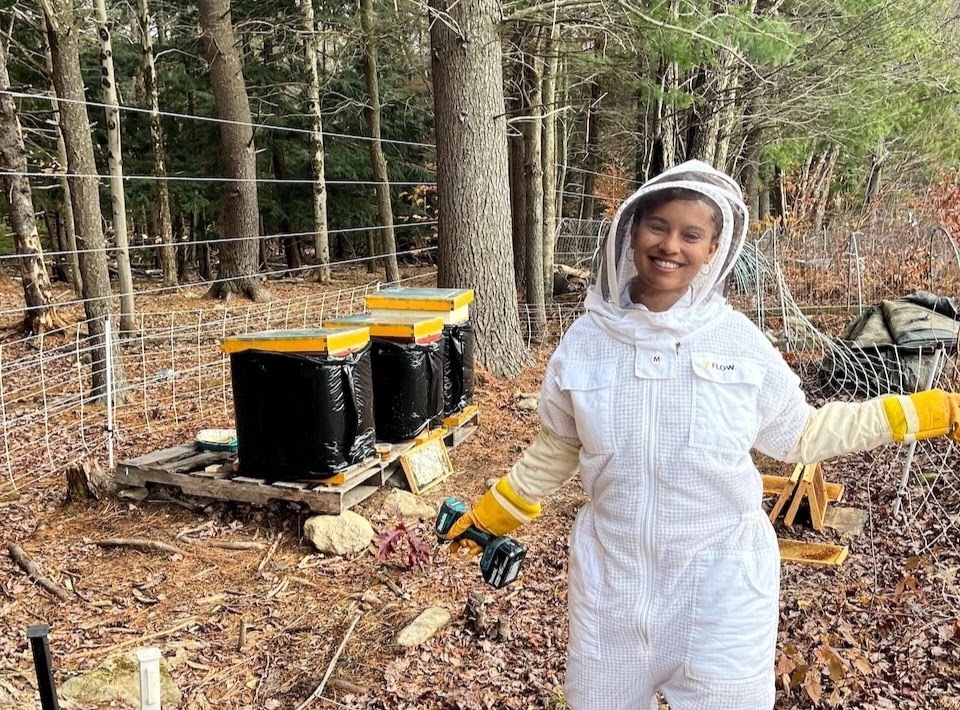
No sooner was this bustle of autumn labor complete, than the first sticking snow arrived. Heralding in by a bold thunderstorm, the snow fell through the night and we awoke to the land’s clear message, “My resting time has arrived.”

I often find myself traveling in the valley below Grafton in the early mornings. Last week, while gazing up at the mountains that make up our home town, my attention was drawn to the distinct horizontal line of snow covering the forest. It was as if an artist’s hand perfectly capped the rolling hills with their glittering white brush strokes.
I estimated the line was at about 1000 ft. Soul Fire Farm sits at approximately 1500 ft. While it rained in neighboring towns and cities the night before, Soul Fire was blanketed in a heavy wet snow that caused the storage and dining tents to groan under the weight.
Sometimes, being responsible for the infrastructure here means taking a flashlight outside at 10pm on a Saturday night to knock the snow off tents to prevent their possible collapse. November is the time to prepare the farm and outdoor spaces for the winter months.
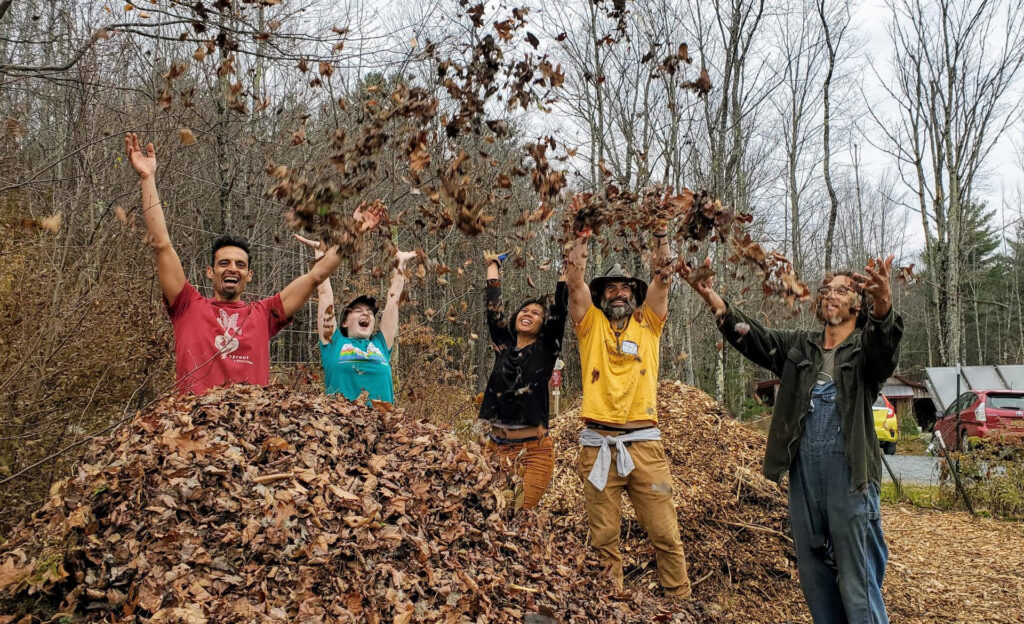
Our month of preparation has included working alongside the farm team to prepare planting areas for next season, preparing equipment for the winter, storing tents, organizing materials, and, maybe a crowd favorite after the enticing sales pitch for enlisting volunteers, “forest mulch reclamation,” also known as, raking leaves, which provides large amounts of fungally enticing mulch for the coming season. And as the land turns inward, we do the same, focusing our energies on maintenance, design work, and all the preparations for the coming season.

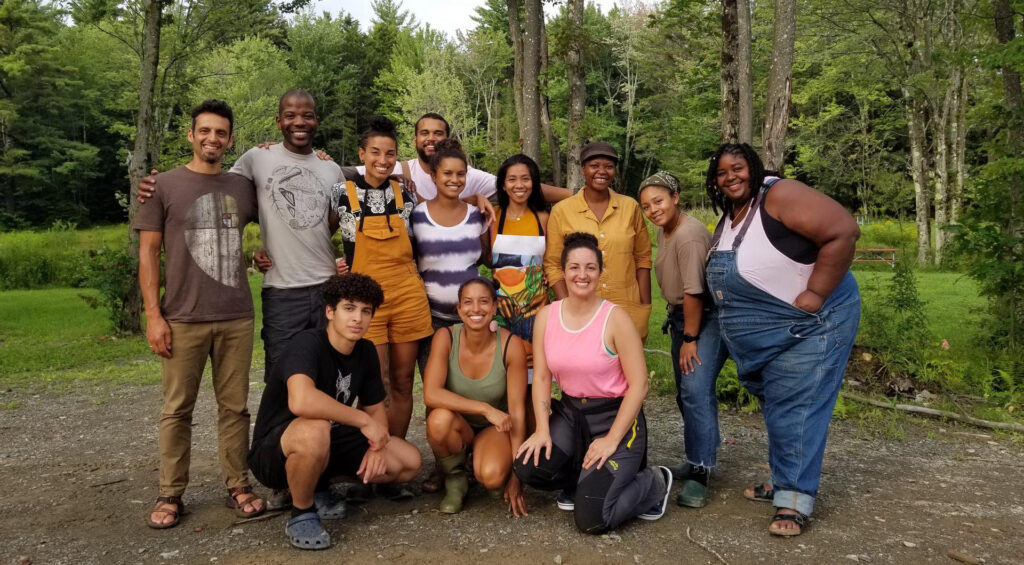
We don’t just grow food, we grow farmers!
What a profoundly meaningful programming season we just wrapped, reaching 53,370 participants in 2021!
We are committed to equipping our communities with the land-based skills needed to reclaim leadership as farmers and food justice organizers, and sharing tangible methods for dismantling racism in the food system and increasing community food sovereignty.
We are sharing some highlights below, including an abundance of educational resources for you to savor this winter!
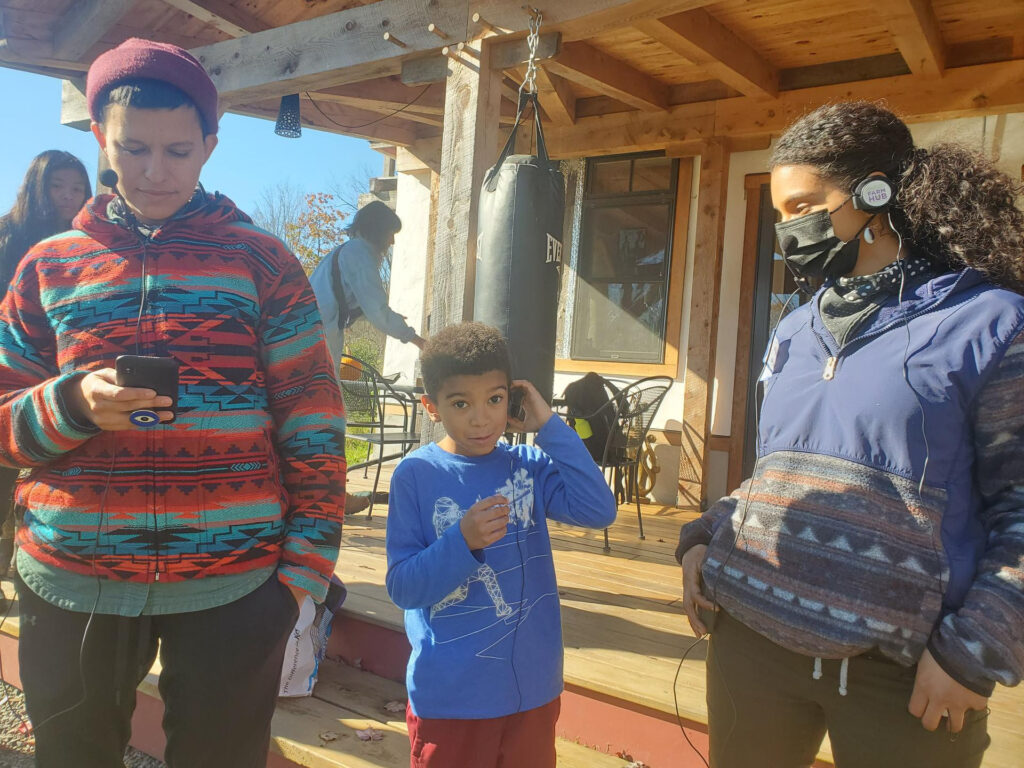
Community Work & Learn Days
We held our last work and learn day on November 11th, hosting a total of 11 work and learn days this year! Each one was capped at 20 so we could really center the learning. Of many highlights, it was a blessing to host bi-lingual program with our friends from Hudson Valley Farm Hub this month. The photo above shows wendelin regalado and Li Sierra who offered live Spanish/English interpretation for our day together.
You can see the whole Community Work and Learn Day Photo Album here.
This document, full of great tips, explains all of the practices we learned by doing: Community Work and Learn Day Handout.
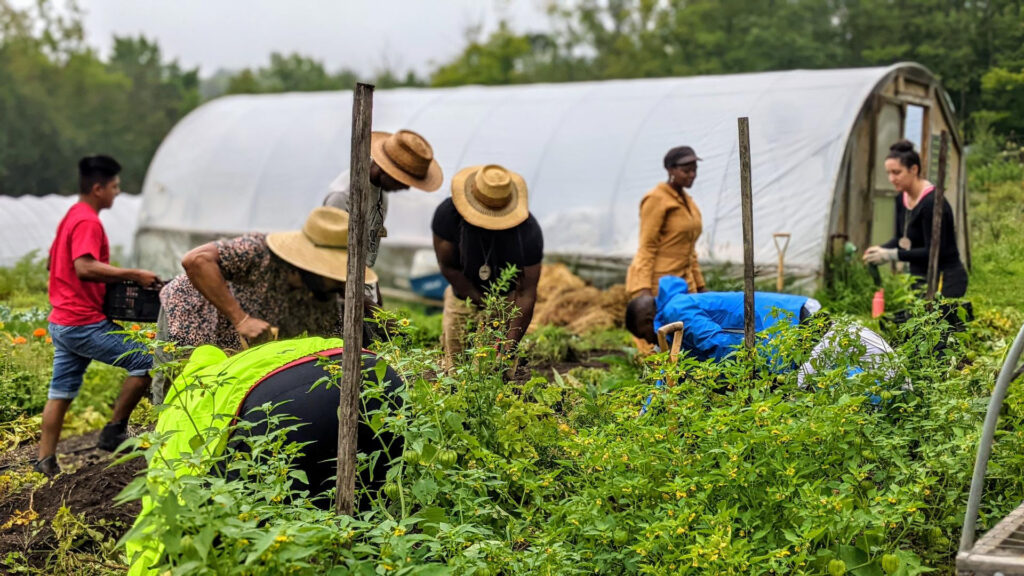
On-Farm Programming
What a blessing to be back in person, in real life, on the land together! This year we hosted over 800 people for our on-farm day programs, including youth and intergenerational workshops, Carpentry 101 and tours. A gleaming highlight was resuming our week long FIRE immersions, where Black Indigenous and other People of Color, from 4 to 64 years old and from Georgia to Puerto Rico, came together to learn Afro-Indigenous farming skills, cook nourishing foods, connect deeply with the land, create ritual and heal with one another.
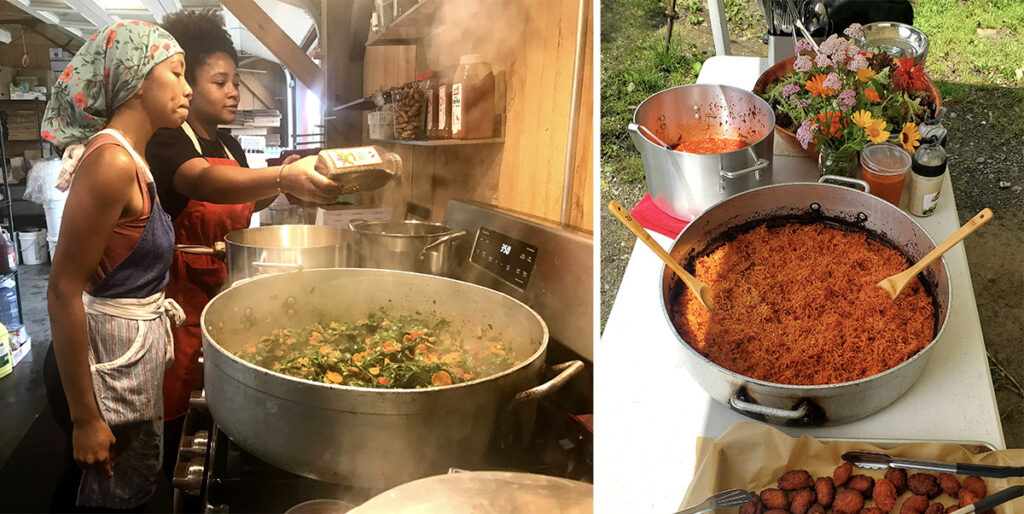
Farm-to-Table
The food we grew this year was cherished by many! We served over 1700 Program Meals with 80% farm ingredients. Our Solidarity Shares reached 50 households for 21 weeks.
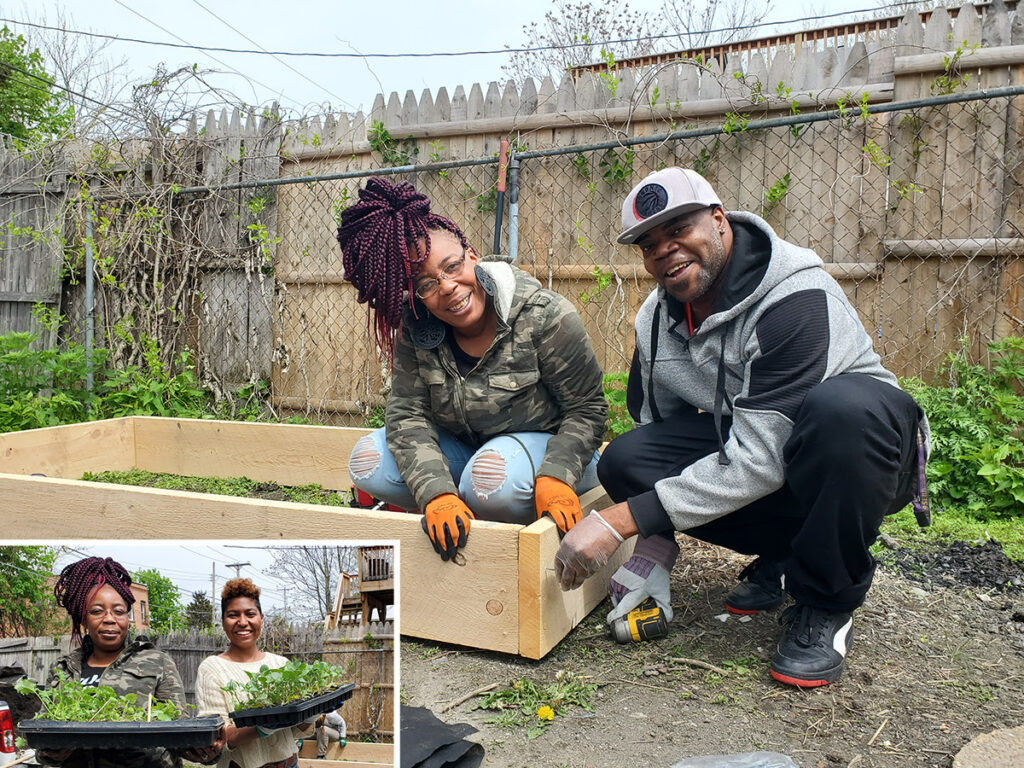
Soul Fire in the City
We built 14 new garden beds this year in addition to supporting the 40+ built previously for households in the Capital District through “Soul Fire in the City,” with supports including crop planning, seedling deliveries, follow up visits, and gatherings for gardeners. One gardener said,
“Our raised garden nurtured my family nutritionally and emotionally in a particularly tough year.”
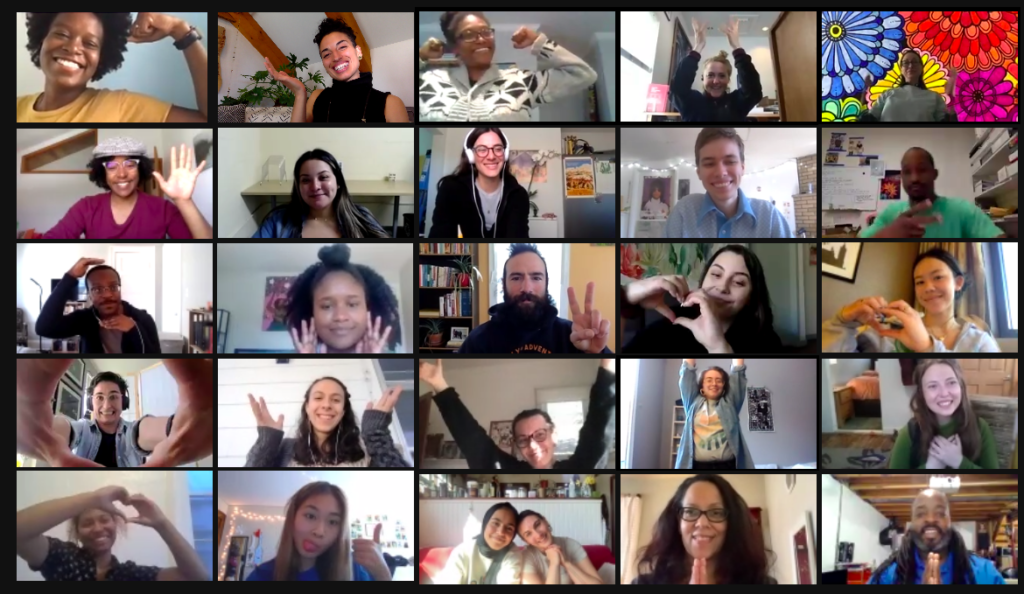
Virtual Trainings & Skill Shares
This year we hosted virtual 3D skill shares on Crop Planning, Carpentry, Soil Health, Mushrooms, Soil Carbon facilitated by SFFI team members and guest experts for BIPOC participants. Each 3D had 1 or more accompanying videos, slides and resource lists to support continued learning.
We also produced 8 additional Liberation on Land skill-share videos that you can watch here.
We broadcasted 33 live episodes of Ask a Sista Farmer featuring expert Black womxn identified farmers, and you can watch them all here (FB) and here (IGTV).
We completed 12 Uprooting Racism in the Food System trainings in 2021, including one bilingual Spanish/English, reaching 1,375 participants this year alone. (Register for 2022 trainings here!)
And our public speaking events reached thousands more!

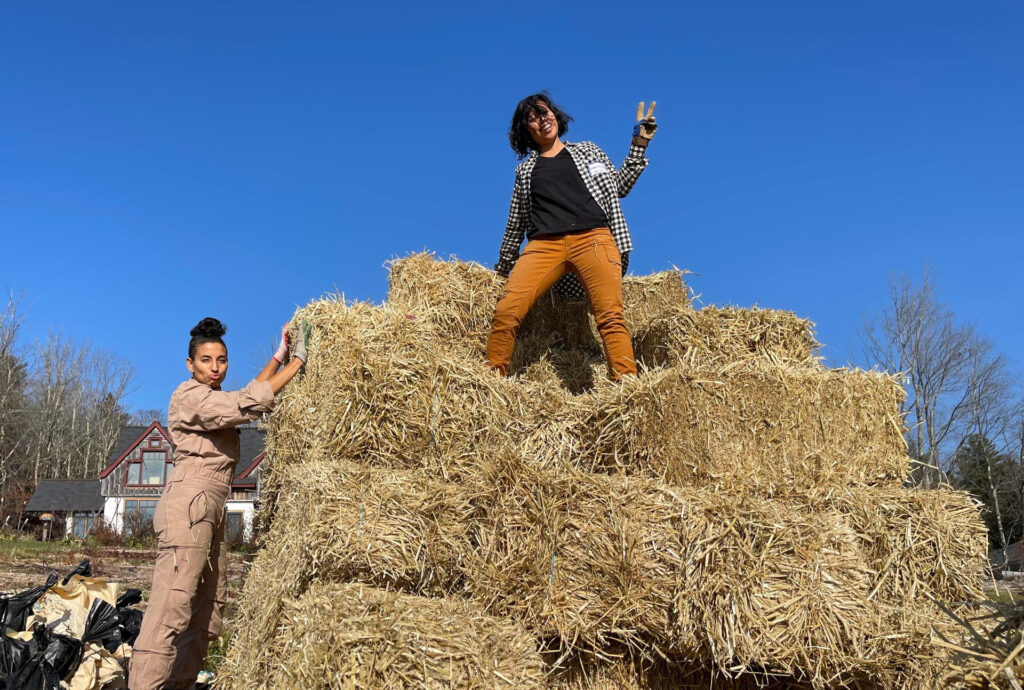
Fairness for Farm Workers
Agricultural labor is among the most dangerous, underpaid, and underprotected work worldwide, including in the United States. Farm employees are still not equally protected under the Fair Labor Standards Act and do not have a federally protected right to a weekly day of rest, overtime pay, sick time, collective bargaining rights, or even the right to a federal minimum wage on small farms. Farmers also suffer from some of the highest rates of mental illness and suicidality of any profession.
As a community encouraging the rising generation to take up the mantle of farm, food, and land work, we need to do our part to make farming a healthy profession. Soul Fire Farm participates in the Food Justice Certified program which audits farms annually to ensure that workers receive time off, benefits, and safe working conditions. We are also working to get Congress to pass the Fairness for Farmworkers Act to legislate basic protections for farm workers. We applaud the “Not Our Farm” team for creating this awesome zine that explores the issues of workers rights on farms – check it out!
The exploitation of farm labor is so deeply entrenched in the DNA of this nation that it can feel daunting to confront it, and yet we must. As an imperfect, ever-evolving community, our SFF team has been working diligently over the past few years to incorporate feedback and build a healthy work culture. We are excited to learn with and from you as well. What success stories and strategies can you share about dignified working conditions for farmers?

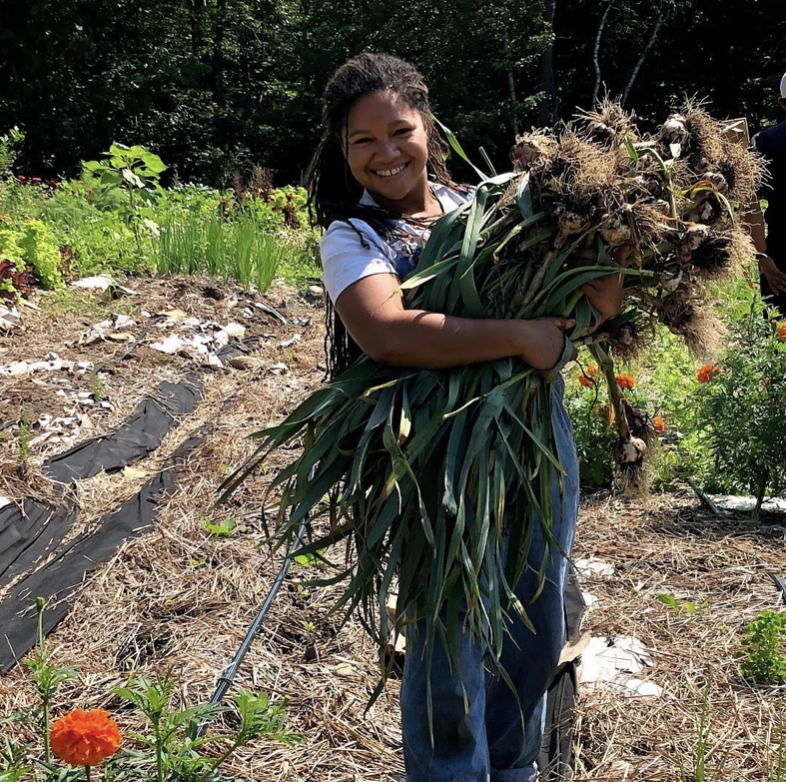
This month we’re celebrating SFF alum, farmer, educator, and fellow seed and soil nerd Amirah Mitchell, as she journeys closer to stewarding her seed saving farm project Sistah Seeds! Amirah has worked in food and land justice since 2007 and wields a degree in Horticulture from Temple University. She recently completed a residency at Greensgrow Farm piloting and managing a fellowship program for aspiring seed growers.Her latest project, Sistah Seeds, will be a seed production farm focused on preserving African, African-American, and Afro-Caribbean heirloom vegetable seeds and function as an educational site for community members interested in learning how to grow and save their own seed crops.
Click here to learn more about Amirah’s journey and how you can support Sistah Seeds growth.
POLICY AND PARTNERSHIPS
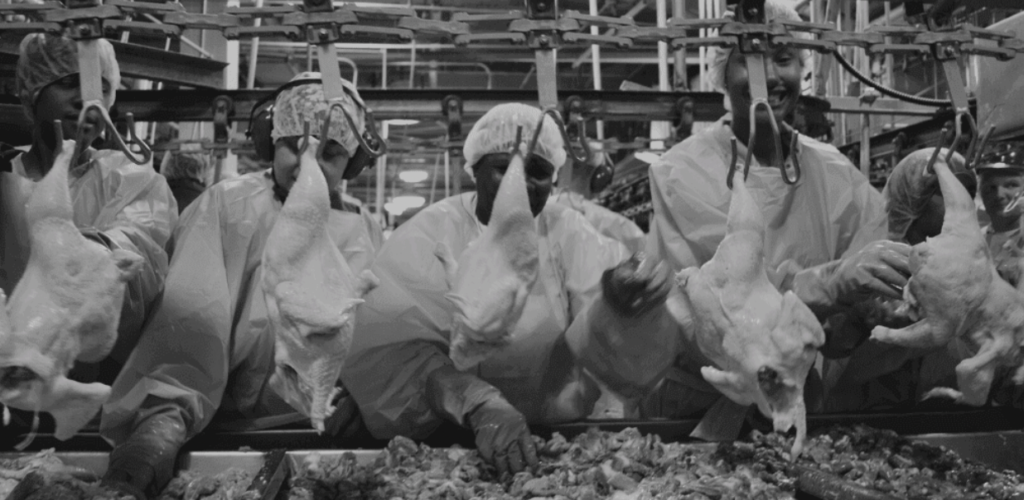
Protecting our Meat Packing Workers
Some moons ago, a Professor surveyed his room of students after showing them an image of migrant workers processing chickens at one of the local meatpacking plants. How much, he asked the students, would you have to be paid to work under the conditions visible in the photo? At least $100 an hour said some of the class, no amount at all said the rest.
Long hours, withheld pay, low wages, loss of limbs, threats of houselessness and deportation, exposure to COVID and other viruses and disease in close,dangerous quarters. These are just a few of the things our siblings endure in corporate controlled meatpacking schemes.
On Monday, November 22nd, Senator Booker and Representative Khanna introduced a bill to expand protections for meatpacking workers that includes language from the Farm System Reform Act and bolsters the Packers & Stockyards Act but support is still needed.
Click here to add your organization’s name to Rural Coalition’s list of advocates moving to push this work forward.

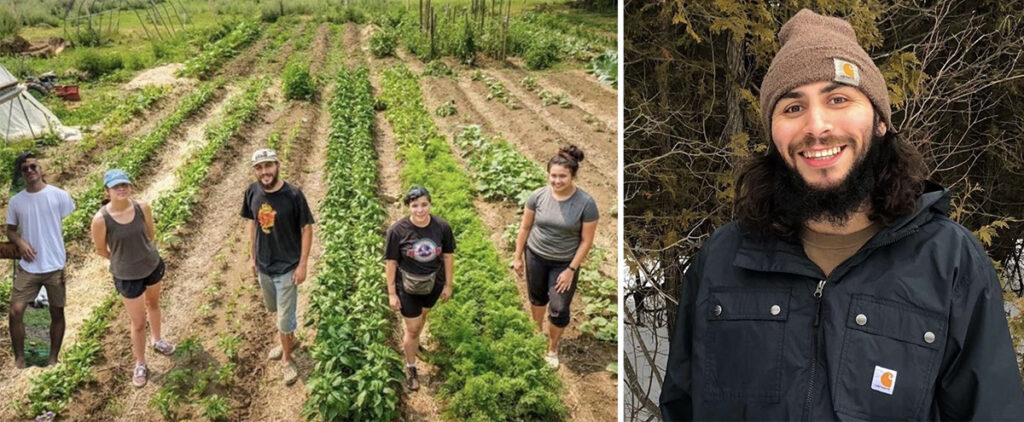
My name is John Bonaparte (he/him), I am a Mohawk of Akwesasne. My passion lies in providing local, ecologically grown food and farm products and providing the tools for other future Mohawk farmers and food entrepreneurs to pursue their ag and eco focused endeavors. I started Bare Bones Farms to pursue these passions in a way that I believe will make a long-term impact, something that future generations will reap the benefits of long after I am gone. We work closely with the Cannery, growing out traditional varieties of vegetables and produce food for the Akwesasne Freedom School, a Mohawk Immersion school focused on revitalizing the language and culture. I am also one of the founders of the Akwesasne Farmers Market. It is crucial we adapt to our changing environment and work in synchronicity with it to be able to truly strive for food-sovereignty, and to keep our culturally important seeds and their stories alive.

Video feature in ABC News on Climate Change and Regenerative Agriculture with Leah Penniman
Article in The Daily Gazette with Cheryl Whilby
Feature in Against the Grain with Cheryl Whilby
Chapter in The Organic Farming Revolution: Past, Present, Future, by Leah Penniman
Essay in Black Food: Stories, Art, And Recipes From Across The African Diaspora, Edited By Bryant Terry
Youth Educational Video on Sprout Up with Brooke Bridges
Ria Ibrahim Taylor, At the Table interview in MINNA

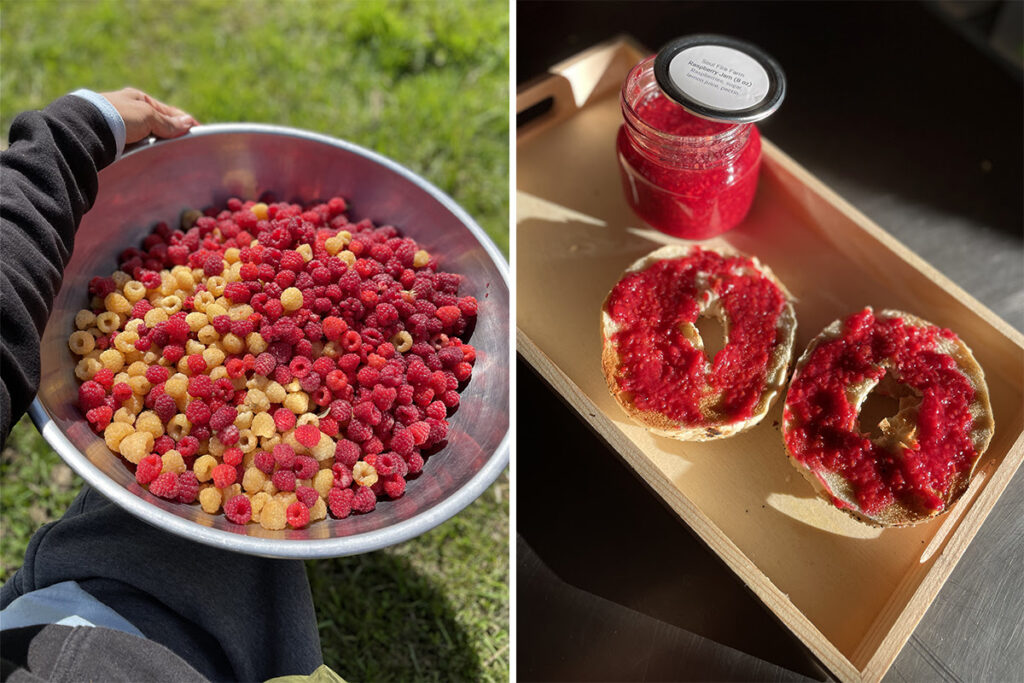
Enjoy the flavors of summer all year round! Our raspberry preserves feature 8 diverse varieties of Certified Naturally Grown raspberries from Soul Fire Farm. This is a low sugar recipe that combines raspberries, sugar, lemon juice, and pectin. We use water bath canning to make the preserves shelf stable for up to 1 year.
Each jar contains 8 ounces of fruit preserves. Refrigerate after opening. Enjoy on toast, pancakes, yogurt, oatmeal, or right out of the jar.

Soul Fire Farm offices will be closed from
December 17, 2021 through January 17, 2022.
Emails sent to love@soulfirefarm.org between those dates will not be read nor responded to. Online store orders must be placed by December 19 for a final pack and send date of 12/20, or they will not be filled until late January.
Rural Action’s Sustainable Agriculture program is currently hiring a Beginning Farmer Outreach Assistant. Learn more
Rock Steady Farm, a queer owned and operated cooperative farm, is hiring 2 more people for next season. One seasonal farm crew position (April-November), and one PT delivery person (June-Nov). Learn more
The Wallace Center is looking for a passionate and motivated human to join their Food Systems Leadership Team
RI Food Policy Council has job openings for Associate Director & Food Access & Equity Program Manager
Grow NYC has an opening for Assistant Director of Regional Ag
Just Fund has job openings for Operations Manager & Community Support Associate
The Food and Land Justice Fund is moving untethered resources (grants) to Black and Indigenous led-organizations in the Southeast for food and land justice initiatives. Learn More & Apply Here

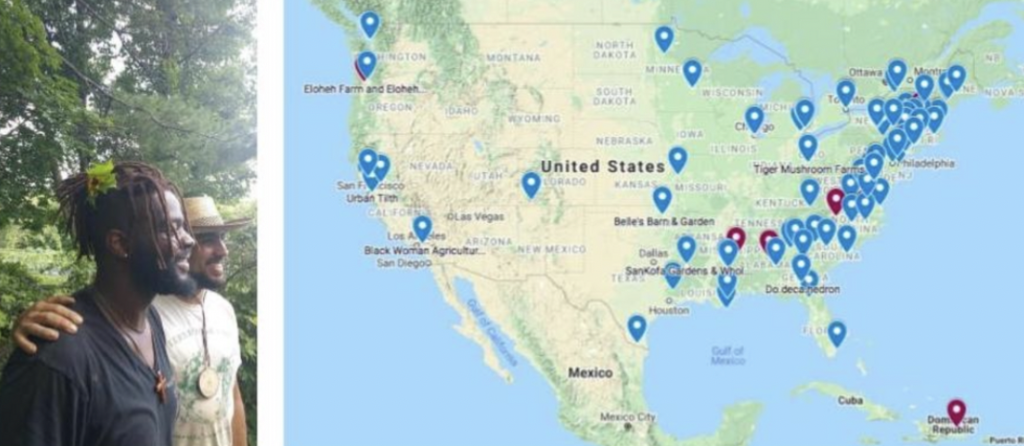
Oppression underwrites our food system, and a tangible action to address food sovereignty in our communities is taking reparations into our own hands through the creation of the Reparations Map for Black-Indigenous Farmers. We recognize that the food system was built on the stolen land and stolen labor of Black, Indigenous, Latinx, Asian and other people of color. We also know that we cannot wait for the government to acknowledge that stolen wealth and land must be returned. Some farmers have already received funding through this project, and we want to provide that opportunity to other Black and Brown farmers. If you have resources you want to share contact a farmer directly to share them, or if you have a project you want to include on the map contact Northeast Farmers of Color!

